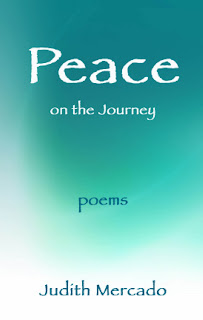
I may be stepping onto a minefield or asking a stupid question, but bear with me as I explain why I’m even bringing this up.
A friend just came back from a New York writers’ conference and reported that publishing professionals told her to avoid labeling her fiction as literary because this honorific is something only the publishing gods and goddesses can bestow. Besides, right now, literary fiction is not selling. On the other hand, a label/genre such as multicultural was considered a good thing.
Well, great for me, I thought. My stuff is multicultural, for sure. Then I got to thinking about what that label really meant and quickly determined that I had some ideas but no hard understanding. So I went to Google, Bing, Ask, Wikipedia, the blogosphere et al., and guess what? I still don’t know.
You might say, “Why the confusion? I recognize multicultural writing when I see it.” Yes, and the U. S. Supreme Court once famously asserted that they could recognize pornography when they saw it.
First of all—writing opportunity, folks!—Wikipedia does not even have pages about either Multicultural Fiction or Multicultural Literature. Is that because the term Multicultural Fiction is strictly an American construct? Searches using Google, Bing, and Ask also brought up no definitive description of multicultural writing. So we’re either in the early stages of a new category in literature or no one understands the category any better than I do. Here are some search results:
- “…we use the term to mean books by and about people of color….” http://www.education.wisc.edu/ccbc/books/multicultural.asp This one seemed intuitively correct at first, but what about Latinos who look just like Swedes?
- “…features authentic cultures, ethnic groups and characters that are new or unfamiliar to the reader….” http://readersresources.pbworks.com/Multicultural-Fiction I loved this one, but who defines what is new and unfamiliar? The person in Ghana or someone in Wisconsin? A straight person who has never met a gay man or the lesbian who spends all her time with lesbians? The black kid from a Chicago ghetto or the white dowager in Palm Beach?
- “Multicultural fiction relates the American experience from minority points of view….” http://www.arrtreads.org/bootcampmulticultural.htm
Even if intended for an American audience, this definition runs afoul of current demographic trends. In the U.S., whites are on their way toward losing clear majority status and the proportion of multi-racial individuals is rising, begging the question of who falls into what category. Of course, in the rest of the world, whites are already in the minority. For these reasons, this definition is not particularly useful, except to the extent it represents an attitude of openness.
-The wonderful blog, The Literary Lab, posted the best genre listing I’ve come across. Guess what? Multicultural was not on it. In the Comments section, the author says she probably should have added it to the list. But, this kind of proves my point. It’s a category we all seem to recognize but can’t completely grasp. http://literarylab.blogspot.com/2009/06/michelle-mclean-on-genre-definitions.html
-Amazon sidesteps the issue. “…material which also happens to be culturally inclusive. In addition to 'shining a light' on various communities….” http://www.amazon.com/gp/richpub/syltguides/fullview/5OU8U0FFN79T
-Scribd is similar. “For stories and novels that include any ethnicity, culture, and race….” http://www.scribd.com/group/4250-ethnic-fiction-and-multicultural-fiction
Okay, enough examples. I probably like best Amazon's definition, except it and Scribd's are so watered down that they tread on meaninglessness. To complicate things further, one can have multicultural literary, multicultural young adult, multicultural … well, you get the picture. Is multicultural even a genre then? If it is, will that designation marginalize certain fiction by ghettoizing it? Is this exclusively a U.S. issue?
So does the term Multicultural Fiction mean anything? What do you think?
Read New York Times article written a month after above post.



















